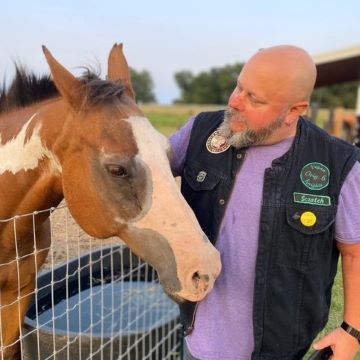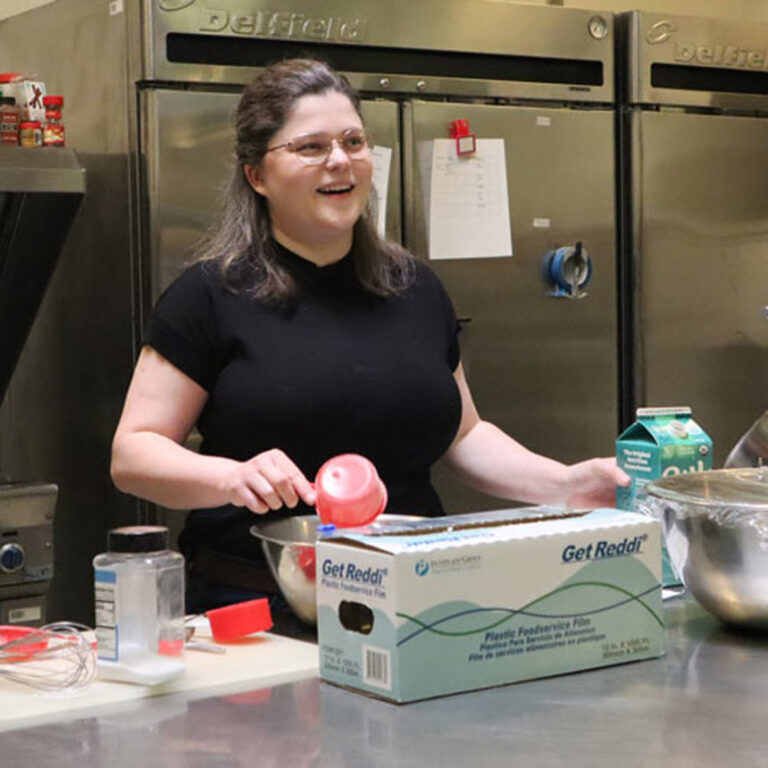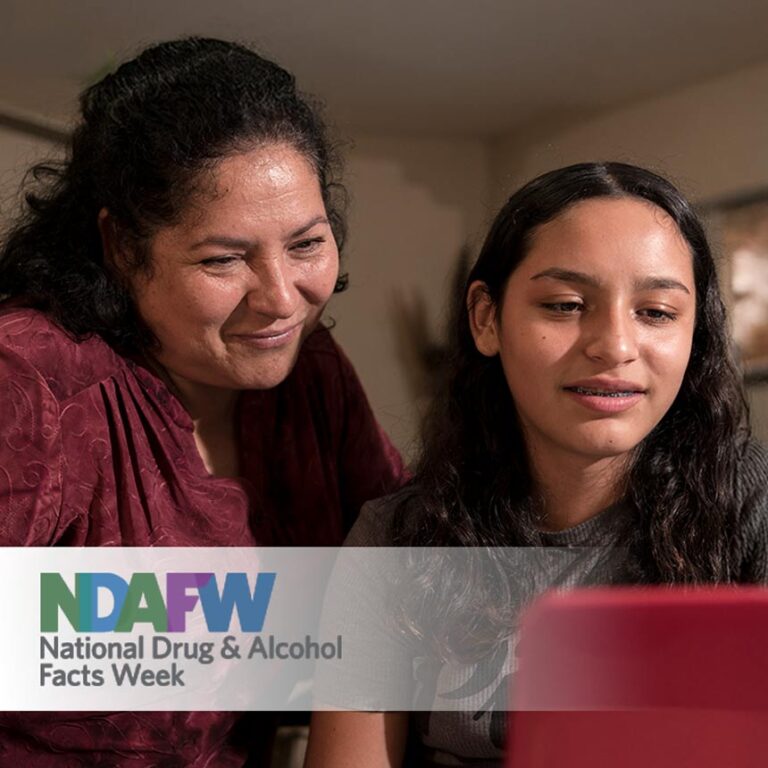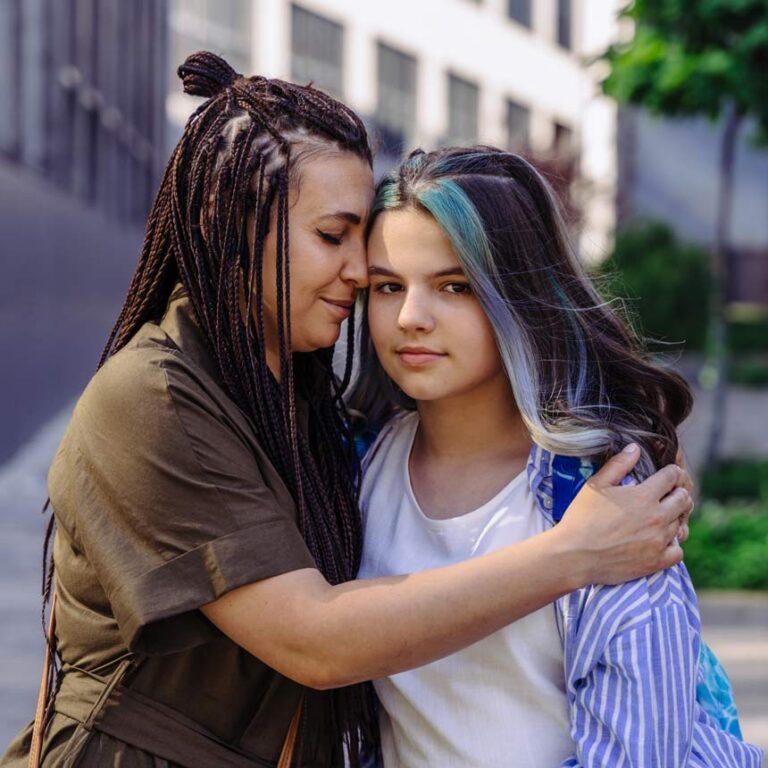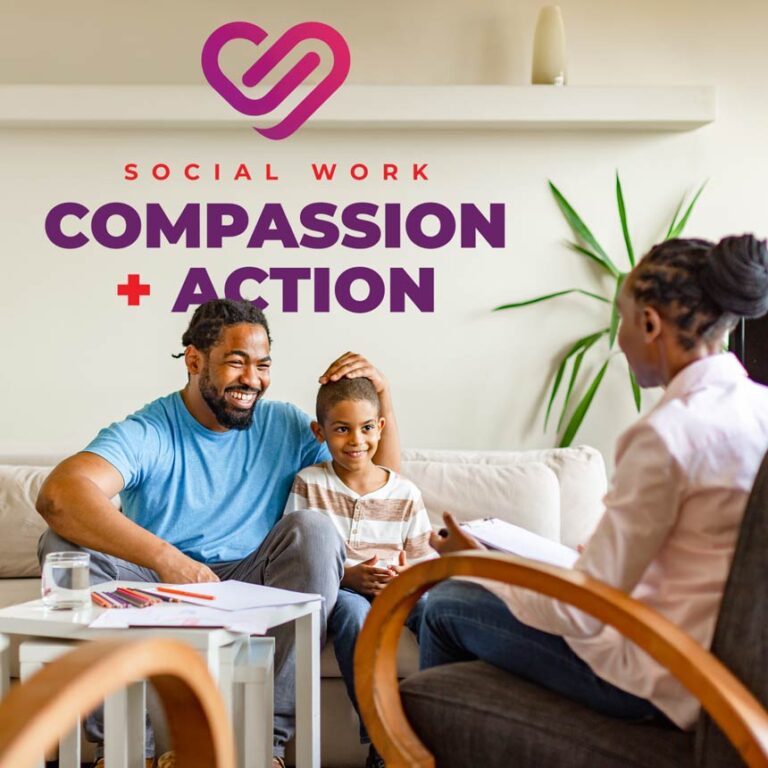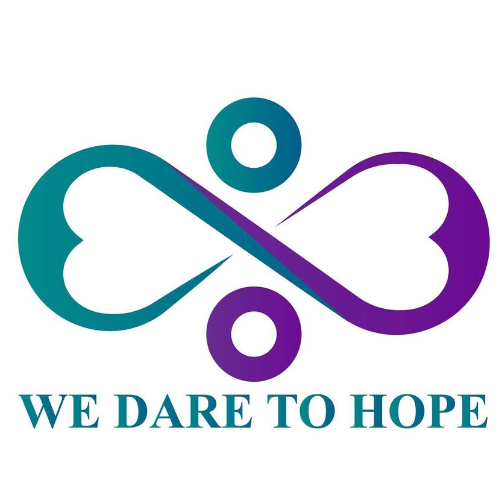
Two parents of former Early Assessment and Support Alliance (EASA) clients who were active in its multi-family group have now created a grassroots support group for others who have family with mental health issues. They are working closely with Medical Director Cortney Taylor and ACT Clinical Supervisor Tina Kilton.
“There was such an impact from that [EASA] group on us that we kept saying, we should start a group after our kids age out of EASA,” says Julie, a non-profit professional who currently works with Community Action. “So we’ve been talking about this for 8 to 10 years. It never was the right time. After my son died, I decided this is now the time to get on this group. I wanted to do something to honor his life and his struggle with mental health. I’d been in a grief group myself at a church and there was this verse about grief, ‘Through our challenges we dare to hope in the goodness of God.’
“I believe we have to dare to hope through all of these challenges as caregivers and as supportive people in the lives of our family members that struggle. You’ve got to hang onto that hope to see you through it.”
Julie proposed the name ‘We Dare to Hope,’ and they wrote a mission statement. Initially, they struggled to find a place to meet, then found Hidden Creek Rec Center. Since then, our Hawthorn site has offered the group meeting space for the next few months.
This small group has been meeting since June and is currently advertising on social media and has plans to make a website. Their goal is to provide an additional support option for people who don’t qualify for the EASA and NAMI family groups, since not everyone qualifies.
They want to offer a space where families can learn more about LifeWorks NW, NAMI and other resources, while at the same time connecting with others who have or are still going through these challenges.
“We want to offer a listening ear, a shoulder to cry on, some help, resources or just to say I get it and it is going to be OK,” she says. “And, if something serious happens, we’re still going to be here for you.”
They are using an activity they learned at EASA, where the group talks about their challenges and what’s going well.
“We pick a challenge, the group lists 10 items that could help, the person picks the three they want to try for the month and then they come back the next month and report on it,” she says. “It has been really successful. People have come back and reported that they’ve done this, and it’s been fantastic.”
As part of their planning, they created an interest form that lets participants identify if they want to hear guest speakers from different areas and different resources. That’s why the LifeWorks NW Washington County Mental Health Response Team is speaking to the group in January; and Dr. Cortney Taylor and Tina Kilton will be meeting with them in December.
The participants also decided to include a book study, and their first choice is NAMI’s, You Are Not Alone.
“We’ve just done a few chapters and we allow about 20 minutes at the end of the meeting to talk and reflect on what the chapters mean to us,” Julie says. “I’d love to hold one meeting a month and then offer a second when we can do some of the things on the interest form, such as art therapy, or a mental health movie night with a discussion.
The group also is considering some guest speakers in meditation or wellness and participating in community events, such as Out of the Darkness Suicide Walk.
“It’s very grassroots, just getting started and we are letting it be open to what people need,” says Julie. “But we don’t want to be too open because sometimes when you are living in that crisis of caretaking you don’t even know what you need. This is for anyone that has a loved one with mental health challenges, and of course, we keep referring them back to LifeWorks NW to see if they can get connected that way—in EASA, TAYIS or ACT depending on their age.”
With help from LifeWorks NW staff, they will also be sharing materials about our programs at meetings.
“Your program was [a] lifesaver for us,” Julie says. “We could not have gotten through our sons struggle with mental health challenges without LifeWorks NW.”
She says that if a LifeWorks NW staff member had not come in to talk with them during one of her son’s hospitalizations, she would not have known how to get our information.
Julie especially wants to get information about LifeWorks NW and other resources out to parents because the need for mental health support, particularly for children, is growing dramatically. She said it was clear when talking with her Head Start colleagues that childhood mental health issues have skyrocketed in recent years.
We Dare to Hope will not only provide peer group support to people whose loved ones have mental health challenges; it will also connect them to resources from LifeWorks NW and other local organizations that can provide mental health services.
According to Tina, our staff is happy to help this group get the word out, while they share peer support with each other. She and her colleagues have worked with Julie for years and feel that this collaboration is positive for all.
“Julie is one of those people who inspire others and is always looking for ways to give back,” says Tina. “Even in a time of grief, Julie looked for a way to give back, which is exactly what she is doing through this group. Julie’s group is going to have an impact and make those who attend feel less lonely in navigating the different resources for mental health.”
“I really just wanted a way to give back in some small capacity,” says Julie.





